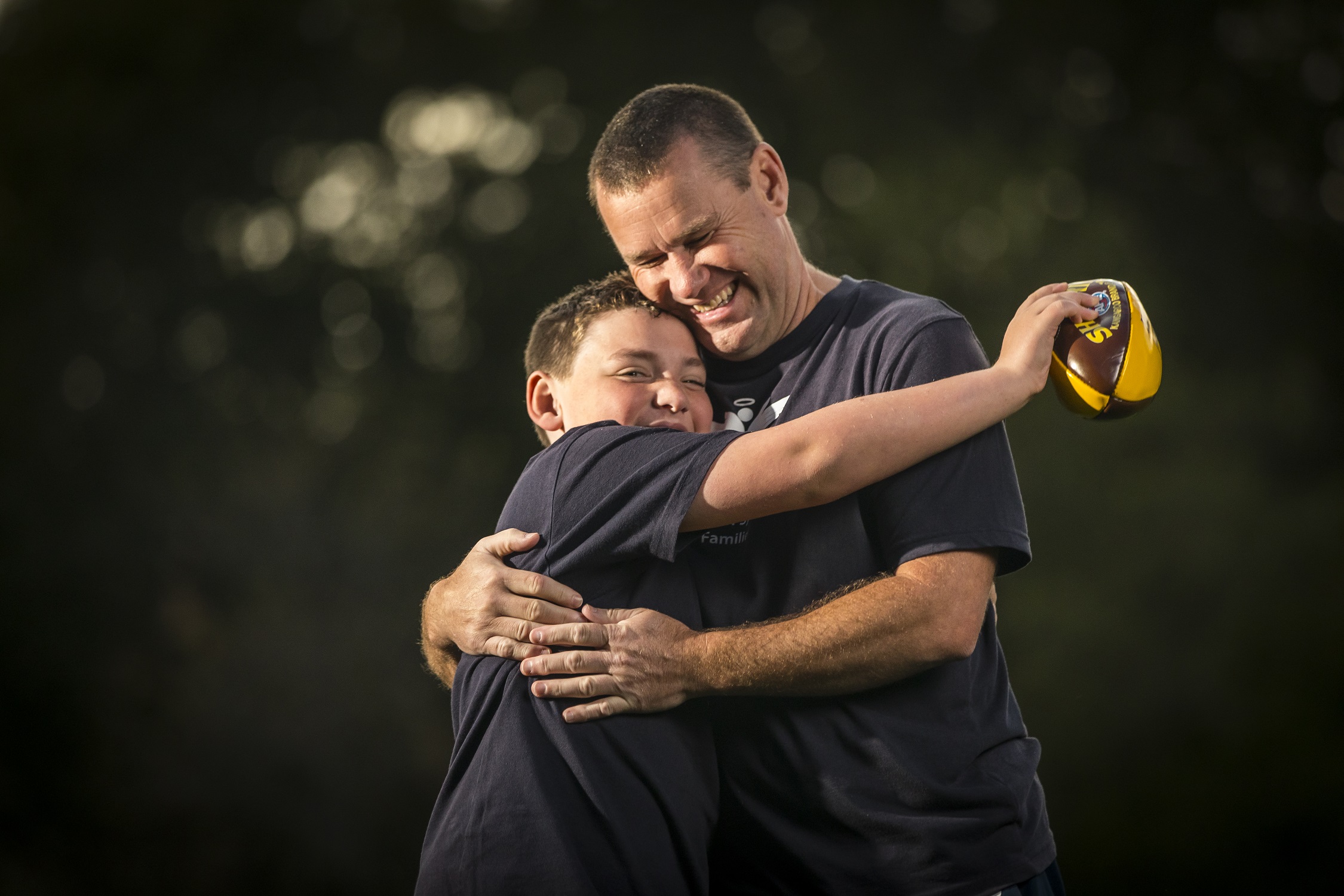
Craig Thomson’s first job as a technician working within The Florey sheep labs has turned into a lifelong commitment. Thirty years later, Craig is renowned for his energetic, warm, intelligent and dedicated service to scientists working with the Institute’s Animal Services as manager.
From the early days of working with Professors Michael McKinley and Clive May – who he describes as wonderful mentors – Craig was trained-up to conduct procedures and experiments. Constantly seeking new challenges, Craig says The Florey has provided a stimulating environment where ethics and high standards are paramount.
“We do our work quietly and efficiently to support the scientists. I feel I am respected and have been treated as an equal through the whole journey,” he says.
“I’ve worked with every director that has led The Florey and I’m confident that I can have a chat with anyone in the institute and be able to have a bit of a laugh.”
Craig and his wife Julie are parents of four children Luke, 15, Jack, 12, Matthew, nine and Emma, five. Jack lives with Angelman syndrome, a rare neurological disease that causes a range of symptoms that prevent normal development and means Jack can’t communicate with words. About 1 in 15000-20000 people are born with this condition. Jack may only reach the intellectual capacity of a five-year-old and appears to be extremely happy most of the time – a typical trait of the syndrome. While children with Angelman’s seem to be full of joy, Craig says that if he could ask Jack just one question, it would be “Are you really happy?”.
Over the years, Craig has been supported by several senior researchers who help him better understand the neuroscience behind Jack’s genetic disorder.
“When Jack was first diagnosed, people like Steve Petrou, Mal Horne, Elisa Hill and Andy Lawrence really supported and helped me understand it. And Andy still sends me papers that relate to Angelman’s. Chris Reid is a great source of information too.”
While he enjoys liaising with a large number of researchers during his working week, Craig feels a deep sense of satisfaction when supporting those trying to understand a rare form of epilepsy that severely affects the development of children around the world.
“Obviously, I can relate to it from a personal perspective. It’s incredibly satisfying to see the researchers chipping away at the science, the passion they bring and progressing towards discoveries that will help kids like Jack in the future.”
